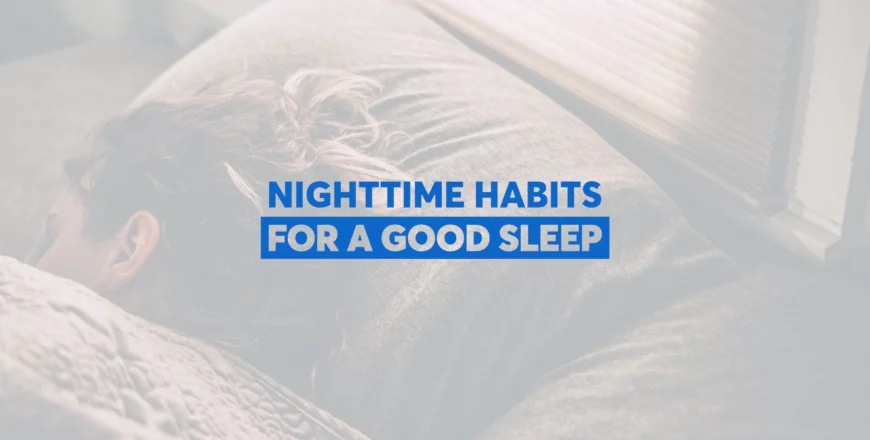
Course 2: Night habits for happiness and success
- Description
- Curriculum
- FAQ
- Reviews

Course Description (What the course is about)
Welcome to “Mastering Your Sleep,” a comprehensive course designed to empower you with the knowledge and practices needed to enhance the quality of your sleep. In this course, you’ll delve into the science of sleep, explore the critical role of nighttime habits, and discover practical strategies for achieving restful and rejuvenating nights. Whether you struggle with falling asleep, staying asleep, or simply want to optimize your sleep patterns, this course will equip you with the tools to transform your sleep experience.
Course Outcomes (What you’ll learn)
By the end of this course, members will have:
1. Understand the Significance of Quality Sleep:
- Comprehend the vital connection between sleep and overall well-being.
- Recognize the impact of sleep on cognitive, emotional, and physical health.
2. Establish Sleep Goals:
- Define personalized sleep goals based on your unique needs and lifestyle.
- Set clear intentions for improving your sleep quality and duration.
3. Implement Effective Nighttime Eating Habits:
- Discover the science behind avoiding late-night meals.
- Develop a balanced eating schedule to support better sleep.
4. Embrace Digital Detox Before Bed:
- Recognize the disruptive influence of screens on sleep patterns.
- Create a digital detox routine to unwind and prepare for rest.
5. Harness the Power of Pre-Sleep Showers:
- Explore the benefits of a warm pre-sleep shower in promoting relaxation.
- Develop a soothing shower routine that enhances sleep quality.
6. Optimize Your Sleep Environment:
- Learn how room temperature and sleep environment affect your rest.
- Make informed choices regarding mattresses, pillows, and bedroom setup.
7. Say No to Alcohol and Drugs:
- Understand how alcohol and drugs impact sleep and overall health.
- Explore strategies for reducing or eliminating substance use to improve sleep.
8. Utilize Sleep Tracking Devices:
- Discover the world of sleep tracking devices and their benefits.
- Effectively select, use, and interpret data from sleep trackers.
9. Enhance Sleep with Journaling:
- Practice gratitude and reflection through nighttime journaling.
- Incorporate journaling as a tool for promoting better sleep.
10. Embrace White Noise and Its Benefits:
- Understand the concept of white noise and its sleep-enhancing properties.
- Choose and implement the right white noise source for your sleep environment.
11. Manage Emotions for Improved Sleep:
- Explore the connection between emotions and sleep quality.
- Develop strategies for handling negative emotions and fostering emotional well-being.
12. Make Sleep a Lifelong Commitment:
- Consolidate your knowledge and progress in mastering your sleep.
- Set long-term sleep goals and commit to a lifetime of quality sleep.
-
1Course 2: Night habits for happiness and success - Introduction
-
2Lesson 1: Understand the Significance of Quality Sleep
-
3Lesson 1: Understand the Significance of Quality Sleep Quiz
-
4Lesson 2: Establish Sleep Goals
-
5Lesson 2: Establish Sleep Goals Quiz
-
6Lesson 3: Implement Effective Nighttime Eating Habits
-
7Lesson 3: Implement Effective Nighttime Eating Habits Quiz
-
8Lesson 4: Embrace Digital Detox Before Bed
-
9Lesson 4: Embrace Digital Detox Before Bed Quiz
-
10Lesson 5: Harnessing the Power of Pre-Sleep Showers
-
11Lesson 5: Harnessing the Power of Pre-Sleep Showers Quiz
-
12Lesson 6. Optimize Your Sleep Environment
-
13Lesson 6. Optimize Your Sleep Environment Quiz
-
14Lesson 7: Say No to Alcohol and Drugs for sleep
-
15Lesson 7: Say No to Alcohol and Drugs for sleep Quiz
-
16Lesson 8: Utilize Sleep Tracking Devices
-
17Lesson 8: Utilize Sleep Tracking Devices Quiz
-
18Lesson 9: Enhance Sleep with Journaling
-
19Lesson 9: Enhance Sleep with Journaling Quiz
-
20Lesson 10: Embrace White Noise and Its Benefits
-
21Lesson 10: Embrace White Noise and Its Benefits Quiz
-
22Lesson 11: Manage Emotions for Improved Sleep
-
23Lesson 11: Manage Emotions for Improved Sleep Quiz
-
24Lesson 12: Make Sleep a Lifelong Commitment
-
25Lesson 12: Make Sleep a Lifelong Commitment








